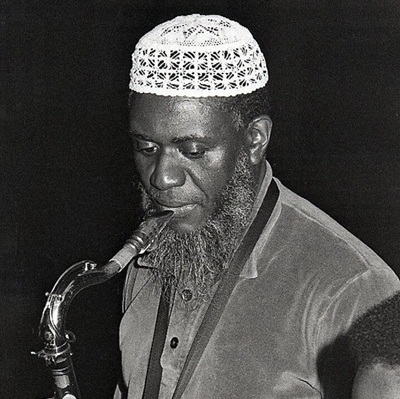.
.
“Charm,” a story by Gargi Mehra, was a short-listed entry in our recently concluded 54th Short Fiction Contest. It is published with the permission of the author
.
.
.

.
Charm
by Gargi Mehra
.
___
.
…..From a cardboard box of her grandmother’s belongings, Mini unearthed a wristlet of exquisite gold. Its sheen had worn off, but the meenakari work that adorned the linked ovals caught her eye. She fastened it around her wrist and it relaxed on her skin, a little loose but fashionably so. In the pages of crumbling albums, she’d seen the photos of Grandma flaunting the figure of a fashion model, but the bauble hinted at an arm bereft of flesh, worn down to the bones.
…..When she skipped down to the breakfast table, Ma spotted it instantly. “Where did you get that?”
…..Mini helped herself to a puri. “In Grandma’s box. Why?”
…..Ma faded to nostalgia. “It was the big fashion of the 1920s. Many ladies wore it as an armlet too, but your grandma preferred it as a bracelet.”
…..“Will it suit as an armlet? I don’t think so. What do you say, Ma?”
…..“Hurry up and finish your breakfast. Don’t forget, you begin your piano classes today.”
…..The first time Mini assumed the low stool facing the grand piano, her bracelet tinkled against the keys.
…..Her teacher laughed. “Pull it up for now, and tighten it from next time. We don’t want anything to distract from the melody.”
…..Mini played, slow at first. But she picked up pace, and soon her music rose from the instrument loud and clear, ringing out through the walls of the house.
…..The trinket brightened her hand for every class from then on.
.
#
.
…..Grandma’s mother had gifted her the bracelet on her tenth birthday. It hung upon her forearm every hour of the day, until her wedding. When the vermillion filled the parting in her scalp, she lost the permission to wear it. Her new husband adored the drink, and loathed the ornaments she carried from her mother’s house.
…..Once, at a bride-viewing for a cousin, Grandma extracted the bracelet from its pouch, and fastened it around her upper arm. Later that night, her lord and master’s handiwork left a mosaic of bluish-purple bruises on her porcelain skin.
…..She let the bauble languish in the family safe, and never took it out again.
…..Grandma birthed strong, healthy babies every few years. A glow radiated off her creamy complexion throughout each of her pregnancies, and even for months after. The arrival of an infant triggered a surge of euphoria that flushed away her husband’s toxins, but the well soon filled up again. Over the years, patches of black, blue and purple spread across different parts of her body.
…..She presented four boys to her husband, and in the end, a girl. At the final christening ceremony, her mother patted her on the shoulder. What good sense she had, her mother said, to deliver a girl only after having a string of boys. How soon her life might have ended if her womb hadn’t acquiesced to societal demands.
…..But, all the while, the cycle of blue-and-white did not end.
…..When the sun rose on her fortieth birthday, they found her sprawled on her bed, a bottle of pills spilled open by her side.
…..The bracelet hung limp from her wrist.
.
#
.
…..Mini and her mother showed it to the local jeweler, who removed two ovals and their links so it fit her snugly.
…..Ma said, “If Grandma hadn’t worn it, she’d never have died.”
…..Mini never stayed away from the bracelet. It tinkled when she performed at her first recital. It jangled by her side when she sat for her grade six exam, and remained tight on her wrist when she blitzed through a perfect rendition of Mozart’s Fantasia at the India International Centre. The ocean of heads before her dwarfed the darkness, but she fixed her attention on the melody, her hands a river flowing over the silt of the keys.
…..Mini tucked it in her purse when she strode through the gates of her college campus. Sometimes she wore it, and her fake friends feigned dislike. Soon, she too, like Grandma, thrust it back into her closet. It emerged only on special occasions, like her public performances, which won applause every time she took her seat at the piano.
…..At a recital for visiting dignitaries, Mini befriended a young man who wore his hair parted to one side, flattened as if pasted on his head. His gentle humour tickled her, and she wondered if he’d mind her ruffling his hair.
…..Two years later, in front of two hundred guests, they tied the nuptial knot.
.
#
.
…..Don’t wear the bracelet after tonight, Ma had warned her the night of her wedding. Mini shook her head – she craved its touch, and her husband admired it too.
…..He did nothing to turn her blue. But the fields of their marriage never turned green, and desolation cloaked their years together. He cared little, but Mini cared a lot. She tucked away the onesies she had picked out with care, and stored them in her heart.
…..She slipped on the bracelet every day. Public performances gave way to piano lessons, and a new knot of admirers of the jewel that gilded her wrist.
…..Then one day, Mini removed the trinket, and played her beloved instrument for the first time in decades, her hands once more a rivulet running over the keys. The notes lifted from the instrument, filling her heart with song.
…..She unlocked her new electronic safe, flush with the gold she had been saving up for her daughter’s wedding. Deep inside, in one grim dark corner, she stowed away the wristlet, forgetting it forever.
.
___
.

Gargi Mehra is a software professional by day, a writer by night and a mother of two at all times. Her short fiction and essays have appeared in numerous literary magazines online and in print. Check out her website at gargimehra.com. She is also active on social media:
Twitter: https://twitter.com/gargimehra
Instagram: https://www.instagram.com/gargi_mehra/
.
.
Listen to a 1968 recording of Ella Fitzgerald sing “My Mother’s Eyes/Try a Little Tenderness”
.
.
Click here for details on our upcoming Short Fiction Contest
.
Click here to read “A Failed Artist’s Paradise” by Nathaniel Whelan, the winning story in the 54th Jerry Jazz Musician Short Fiction Contest
.
.
.















































Beautiful story, Congrats Gargi.
Thanks, Sujata! Sorry I saw the comment quite late!
Awesome…. Congrats Gargi..
Thanks, Chetan! Sorry for delayed reply!